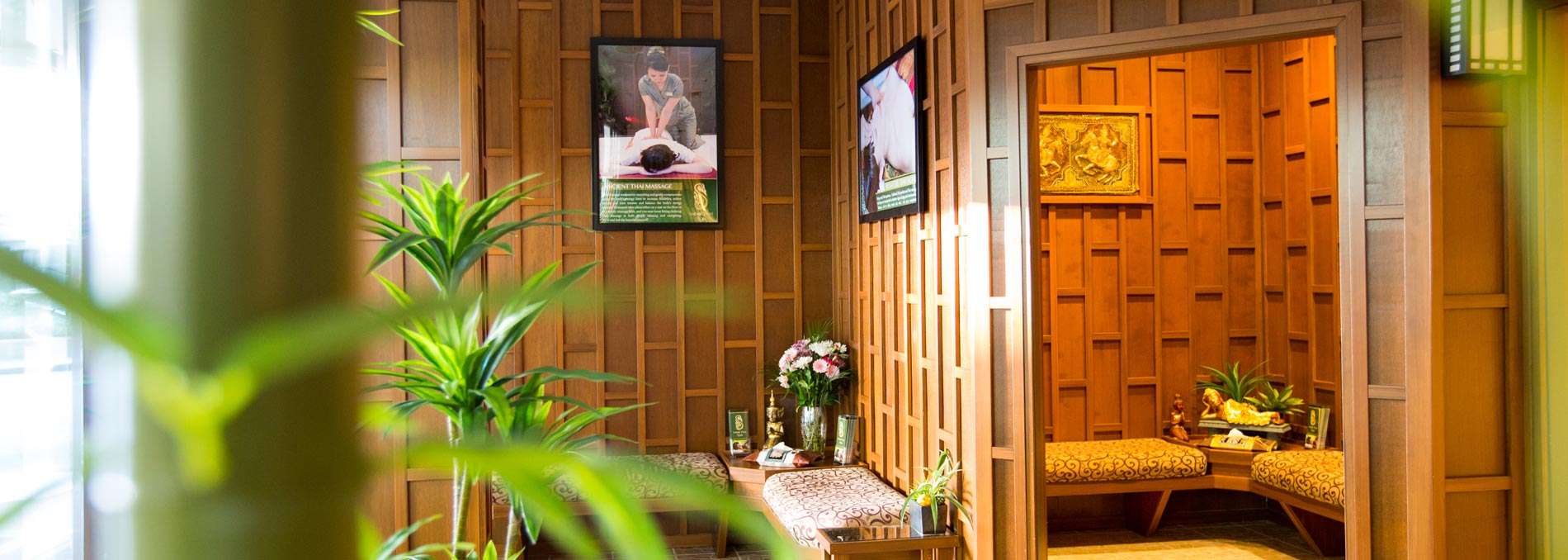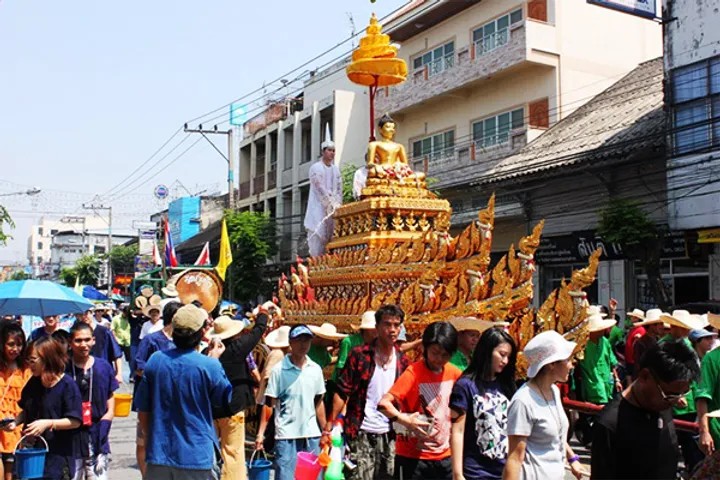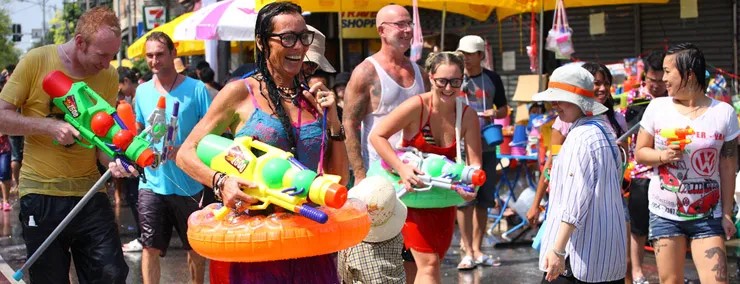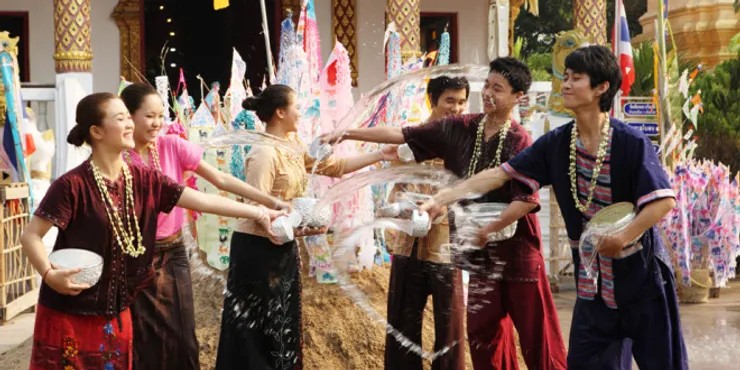April is a special time for Thais. Not only is it the hottest month of the year, but it also holds a special celebrating occasion– Thai New Year also known as Songkran Festival. In some respects Songkran is similar to Christmas for the Thais – it’s the longest and most awaited public holiday in Thailand and is a time of celebration, getting together with family and friends and over-indulgence in food and alcohol. Though there are two major factors differentiating Songkran from Christmas: water and heat. Songkran is held at the hottest time of year in Thailand, which comes in handy with the ritualistic water sprinkling, pouring and drenching.
Songkran Festival celebrates the traditional Thai New Year, typically from April 13th to 15th, though some provinces celebrate the week before or after. It marks the beginning of the new solar year and the summer season in Thailand. The tradition was introduced to Thailand by ancient Brahmins from India who believed that the sun re-entered Aries and finished its orbit around the earth on April 13th. The event is closely related to the Vernal Equinox, a time when New Year was typically celebrated in the past. The Songkran festival is similar to the Holi festival in India, Cheng Meng ancestor ceremonies in Chinese communities and Easter in Christian countries. It is believed that April Fools Day came about to mock people who didn’t accept the switch of New Year from April to January in France in the 16th century. The Southeast Asian water festival is also celebrated in Burma, Cambodia, Laos and Yunnan, China.
Songkran appears like one huge water carnival with travellers lining the streets armed with water pistols and vats of iced water soaking one another in merriment whilst simultaneously drinking, eating and dancing. However, besides the evolution of a nationwide water fight, there is a more ceremonious history to Songkran and many traditional customs are still carried out throughout the region.
The water aspect of Songkran originates from the symbolic cleansing element of the liquid. The wet festivities are similar to a spring-cleaning day, both physically and spiritually. People traditionally sprinkle water on one another showing positive blessings and good wishes, as well as gently pouring scented water over the hands of elders as a gesture of reverence. Thais still perform these rituals at Songkran in their homes and at public events. They also pour water over statues of the Buddha three times. At this time of year Thais clear out old useless possessions lest they bring bad luck, and make new year resolutions.
During this period there are a number of parades and cultural shows to see in city centres as well as the giving of offerings to monks and temples. The parades are colorful and vibrant and show Thai festivities at their best with many Thai dancers and musicians in tow. Local temples decorate floats with beautiful flowers around a central Buddha statue which locals pour water over as they pass by for good fortune.
Chiang Mai is one of the wildest and most fun places to celebrate Songkran. The whole of the central moat area is packed with people ‘playing water’ or ‘len nam’ in Thai. The traffic comes to a near stand still as pick-ups loaded with people, barrels of water and various throwing, squirting and spraying paraphernalia cruise around soaking all those in sight. Even driving through the quieter village areas of Chiang Mai, you will see shops or homes with small parties set up, again with copious amounts of water on standby to douse their next victim.
And of course the capital, Bangkok, sees some of the country’s biggest and brashest Songkran festivities, with huge water fights taking place in the Silom and Khao San areas, as well as in expat enclaves along Sukhumvit Road.
If you want to be part of one of the biggest most outlandish festivals in the world, Songkran in Thailand is the place to do it. It is advised to book ahead as transport and accommodation are in high demand in this season. For those who prefer to stay dry it is possible to avoid the danger zones and slip away to quieter more remote locations, though complete waterlessness isn’t guaranteed and even a quick trip out to the supermarket can result in a soaking!





